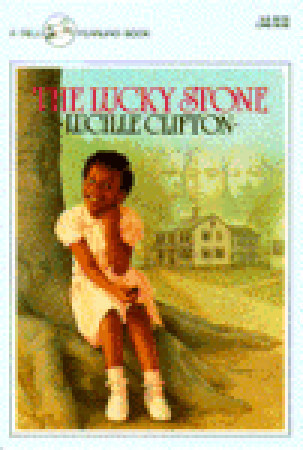
There is nothing Tee enjoys more than sitting out on the porch with her great-greatmother, listening to the fascinating stories about the lucky stone. Shiny and black as night, it brought good fortune to each of its owners for over one hundred years. First it helped Mandy, a runaway slave, win her freedom. Then it saved Vashti from death by lightning at a prayer meeting. And it even saved Tee's great-grandmother from the ferocious dancing dog and helped her meet her husband. Now Tee can't help wondering what the old stone has in store for her. She certainly could use some luck on Valentine's Day. But the lucky stone doesn't belong to Tee. How can her wish come true?
Author

Lucille Clifton was an American poet, writer, and educator from New York. Common topics in her poetry include the celebration of her African American heritage, and feminist themes, with particular emphasis on the female body. She was the first person in her family to finish high school and attend college. She started Howard University on scholarship as a drama major but lost the scholarship two years later. Thus began her writing career. Good Times, her first book of poems, was published in 1969. She has since been nominated twice for the Pulitzer Prize for Poetry and has been honored as Maryland's Poet Laureate. Ms. Clifton's foray into writing for children began with Some of the Days of Everett Anderson, published in 1970. In 1976, Generations: A Memoir was published. In 2000, she won the National Book Award for Poetry, for her work "Poems Seven". From 1985 to 1989, Clifton was a professor of literature and creative writing at the University of California, Santa Cruz. She was Distinguished Professor of Humanities at St. Mary's College of Maryland. From 1995 to 1999, she was a visiting professor at Columbia University. In 2006, she was a fellow at Dartmouth College. Clifton received the Robert Frost Medal for lifetime achievement posthumously, from the Poetry Society of America.